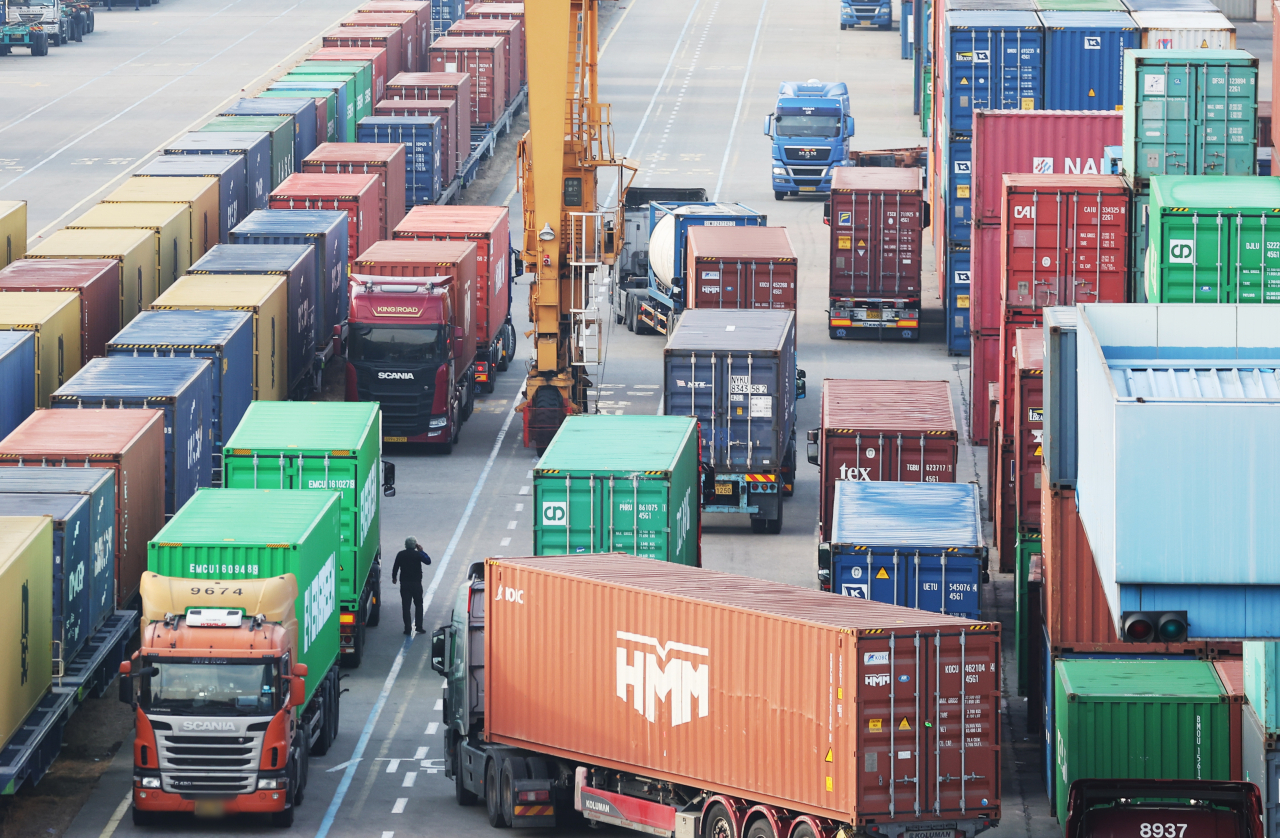 |
Trucks leave the Inland Container Depot in Uiwang-si, Gyeonggi Province on Monday, as protests ended on Friday. (Yonhap) |
Senior officials of the International Labor Organization are set to meet with the Korean ministries of labor and transport to discuss matters regarding the local truckers strike on the occasion of attending a local conference in Seoul, the United Nations agency confirmed on Monday.
The ILO members, including Tim de Meyer, senior adviser on standards policy, Karen Curtis, chief of the freedom of association branch, and Xavier Beaudonnet, head of the collective bargaining unit, will attend a two-day conference under the theme of international human rights and labor standards, hosted by the state-run Judicial Policy Research Institute, on Tuesday, the agency said via email.
“Curtis will take advantage of her presence in Korea to meet with the Ministry of Employment and Labour and the Ministry of Land Transport to share the very useful general guidance that the ILO supervisory bodies provide for labor dispute resolution in line with international labor standards and principles of freedom of association,” Steve Needham, senior communications officer at the ILO regional office for Asia and the Pacific, told The Korea Herald, when asked about the agency’s stance over the Korean government's response to the recent strike.
The ILO has cautiously involved itself on the strike over the past weeks.
Earlier this month, the ILO wrote to the Korean government on the strike, recalling previous decisions made by the ILO Committee on Freedom of Association concerning the freedom of association rights of self-employed heavy goods vehicle drivers. The letter suggested the Korean government be guided by these principles and inform the ILO of further developments of the strike.
ILO Secretary-General Gilbert Houngbo told Park Jong-pil, head of the Labor Ministry’s planning and coordination office, last week the Korean government must calm the situation, not escalate tensions, at the ILO Asia-Pacific regional general assembly in Singapore.
As to the ILO’s engagement over the strike, the Korean government, however, viewed it as a “simple opinion inquiry.”
After striking for 16 days, truckers voted to return to work Friday, with a majority of union members voting against continuing the demonstration. A senior official of the presidential office said on condition of anonymity that two weeks is “the maximum period that truckers could endure,” as they could not make money while staging the protests.
While sticking to a hard-line stance, President Yoon Suk-yeol’s approval rating rose two consecutive weeks before slightly falling this week.
Although the strike ended, confrontation over the minimum freight rate system, which sparked the strike, is still ongoing.
The minimum freight rate system is designed to prevent overwork, overloading and speeding that threaten safety by guaranteeing the minimum wages that cargo workers are paid. The Cargo Truckers Solidarity union called for the government to make the minimum freight rate system permanent.
The main opposition Democratic Party of Korea held a subcommittee meeting on traffic legislation Friday and voted exclusively to extend the deadline for the minimum freight rate system by three years, which is to expire this year.
However, the system's future is bleak because the government and the ruling People Power Party, which initially proposed the plan to extend the deadline, changed their stance to “review from square one.”
Just before the strike, the government and ruling party proposed extending the system's life by another three years. However, as financially squeezed truckers left protests to get back to work, the government changed its stance, saying it might consider abolishing the system on the principle that the state should not "intervene" in the price set by the "market."







